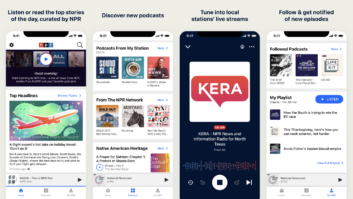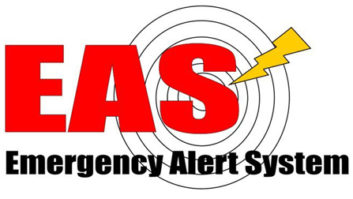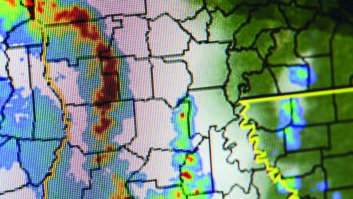As we have reported, NPR Labs is interested in demonstrating the delivery of emergency alerts to the deaf and hard-of-hearing in the Gulf Coast states through local public radio stations and the Public Radio Satellite System.
Now, the U.S. Department of Homeland Security and FEMA has awarded NPR Labs a contract to demonstrate this technology. NPR Labs says this is the first effort to deliver real-time accessibility-targeted emergency messages, like weather alerts, using RDS.
This pilot system is intended to demonstrate that all individuals, including those who are deaf or hard-of-hearing, can rely on battery-powered radios to stay informed in emergencies when electricity, Internet and other communications channels are unavailable.
NPR Labs will work with DHS and FEMA to identify a total of 25 public radio stations in Alabama, Florida, Louisiana, Mississippi and Texas to participate in the pilot. The distribution network of the Public Radio Satellite System will be used to test the effectiveness of the message delivery system.
The Gulf region was chosen because it’s frequently subjected to extreme and sudden weather conditions. Once proven, the system could be rolled out nationwide on the public radio stations served by the PRSS, which reach 95% of the U.S. population, according to NPR.
NPR Labs VP/Executive Director Mike Starling says the Labs has developed expertise in making radio broadcasts available and accessible to everyone. “We believe this system can be a life-saver for those unable to hear emergency alerts today.”
In the demonstration project, FEMA will transmit emergency alert messages to the PRSS using the Common Alerting Protocol. The PRSS network operations center will retransmit the warning using RDS on the participating 25 public radio stations on a dedicated digital alerting channel.
The stations will broadcast the emergency alert to receivers capable of displaying text messages. Deaf or hard-of-hearing project volunteers will be alerted to the message by a flashing indicator on their radios or a bed-shaker triggered by their radios, to ensure the message is received day and night.
NPR Labs plans to identify 500 individuals who are deaf or hard-of-hearing in the listening areas of the participating stations. The volunteers will be surveyed periodically to determine the efficacy of the warnings.











